From Hospital Corridors to National Standards: CFO Robert Kakooza on Leading with Compassion, Strategy, and Integrity
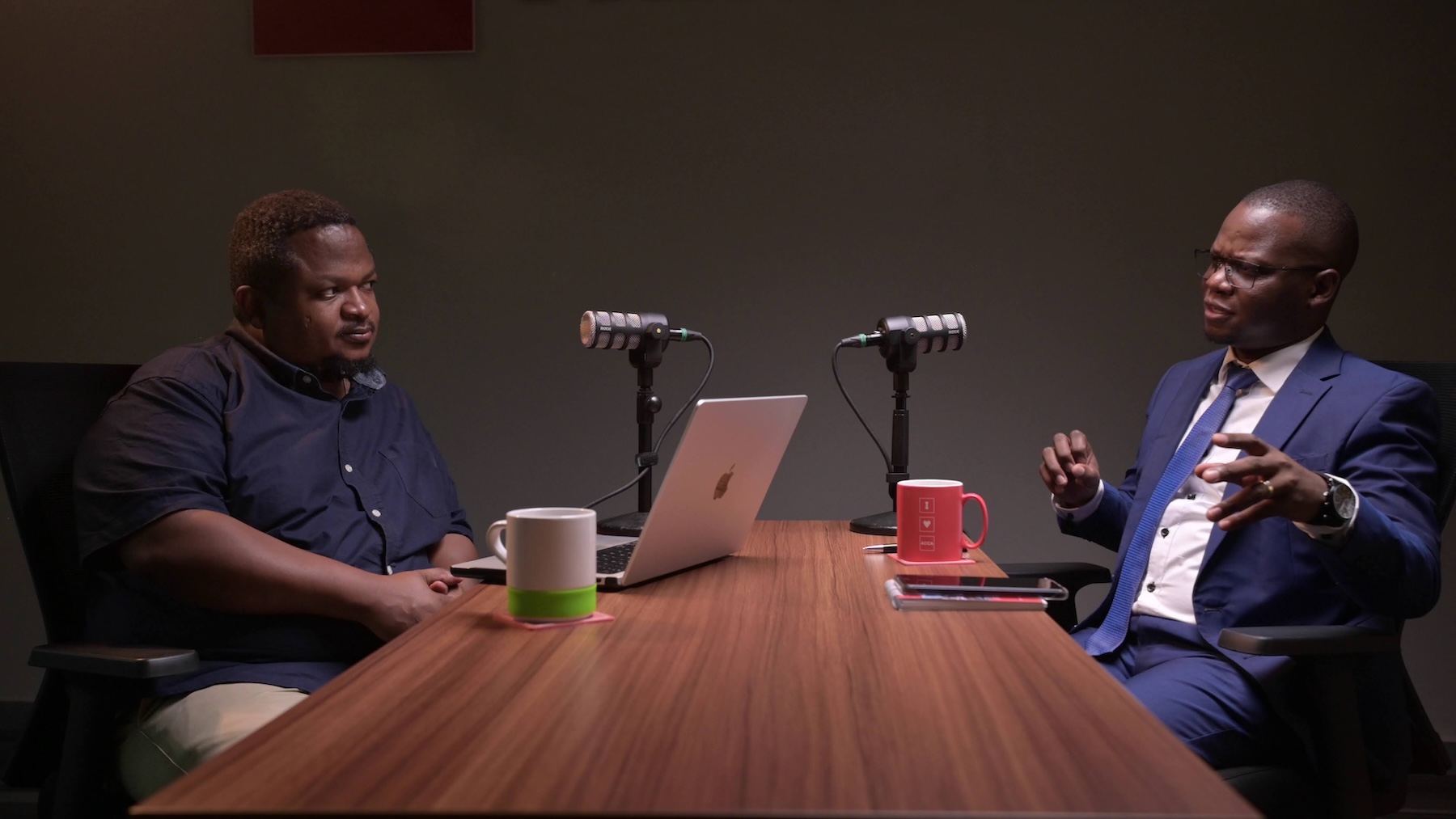

Robert, let’s start by getting to know you better. Tell us a bit about yourself, your background, and your career journey so far. And before we dive into the details, I’d like to take a moment to thank our faithful partners, ACCA Uganda and Deloitte Uganda, for their support in making this interview possible.
Well, to tell you a bit about myself, I’ve been on a journey through several sectors, each of which has shaped my perspective as a finance leader. I started my career in banking, which laid the foundation for understanding financial systems, customer service, and regulatory frameworks. After a few years, I briefly explored the hospitality sector, a lesser-known chapter of my story, but one that gave me insights into managing finances under constraints.
From there, I transitioned into oil and gas, an industry that taught me the private sector’s laser focus on efficiency, cost control, and profit margins—understanding the bottom line in a highly competitive environment.
But where I really established myself was in healthcare finance. I spent over nine years at St. Francis Hospital Nsambya, first as a Senior Accountant, then as Head of Finance, leading a team of 45 and advising the CEO, Board, and Heads of Departments on budgets, procurement, cash flow, and sustainability strategies. It was a delicate balancing act—keeping the hospital financially healthy while never losing sight of the patients and their families. I also had the privilege of serving as Finance Director at OneWorld Health, a global not-for-profit providing healthcare across East Africa. There, I worked on scaling the organization’s reach, improving systems, driving compliance, and ensuring that every dollar worked as hard as possible to serve patients.
Today, I’m the Head of Finance and Administration at the Uganda National Bureau of Standards (UNBS). My focus is on developing sound financial policies, managing resources prudently, and supporting the Bureau’s mission to protect Ugandans by ensuring the quality and safety of products in our market.
Beyond work, I’m a family man—married with three children. I’m deeply passionate about Africa’s potential and believe that finance professionals have a vital role to play in shaping its future.
It’s been quite a journey, and I’m excited to share some of the lessons I’ve learned along the way.”
As a CFO in the healthcare sector, especially in a hospital setting, how do you navigate the difficult balance between financial sustainability and compassion for patients—some of whom may be critically ill and unable to pay their bills? How do you prepare yourself for such delicate situations, where you must make tough decisions while ensuring the hospital remains financially viable?
It’s complicated—I’ll tell you the truth. The first two years of my career in healthcare were incredibly difficult. Imagine having to tell someone they can’t take the body of their loved one because the bills haven’t been settled. It’s heartbreaking. But at the same time, the hospital must buy supplies to treat other patients.
It’s a tough balance—compassion versus sustainability. You have to be flexible and understanding. Many times, the issues escalate because of poor communication between the hospital and families. People come shouting, people come angry, but sometimes, someone approaches you calmly and says, ‘Look, I can’t pay the 15 million, but I can manage 10 million.’ What do you do then? You make a decision.
The truth is, hospitals lose a lot of money in such situations. When we let patients go without proper follow-up, they often never return to clear their balances. Those are bad debts we have to write off.
Preparing for such a role takes a lot of patience, strong communication skills, and an understanding of different stakeholders—the patients, the families, the staff, and the community. But you also have to know when to cut your losses.
As a finance person, I’ve learned that if I can recover 98% of what is owed and lose 2%, that’s acceptable. You can’t let the 2% sink the whole ship. It’s about balancing the cost and the benefit—for the patients and for the sustainability of the institution. That’s the hard reality of managing finance in healthcare.
I’ve heard that banks factor non-performing loans into their interest rates. In the same way, do hospitals also factor expected bad debts into the fees they charge patients?
Definitely. Any finance person will tell you that when you build a pricing model, you have to factor in the reality that you will lose some money along the way. That’s why bad debts are part of the conversations we take to the boardroom—we explain that this money has been lost because of the nature of the business we are in.
But the key thing is, those losses are already factored into the pricing model. The problem only comes when you cross a certain threshold—when losses grow so much that the business itself becomes unsustainable. That’s the point where you have to be very careful.
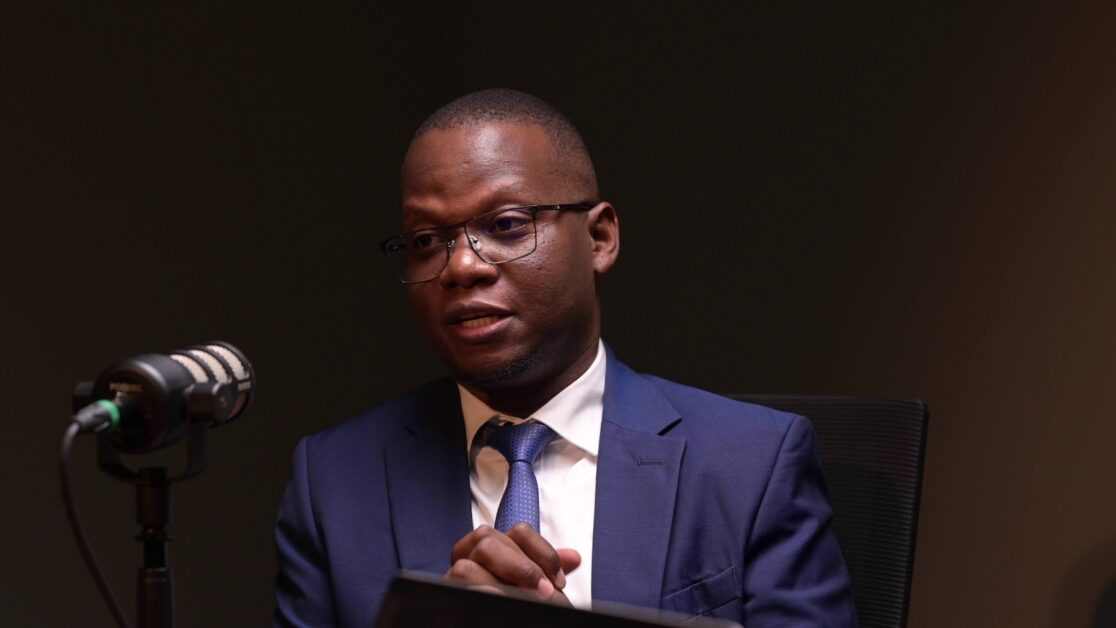
For example, if I’ve priced a service at 4 million and you come in offering 3.5 million, I can be flexible. Why? Because I know I can recover that 500,000 difference from other services—maybe diagnostics, maybe consultations.
It’s a matter of balancing your pricing, factoring in expected losses, and making sure that overall, the business stays afloat.
You see, it’s a bit like running a business. As a finance professional, you have to understand the services that make money and those that don’t. For instance, in hospitals, you’re not going to make money from selling drugs—the margins are just too small. I can’t buy a drug from a supplier lat 50 shillings and expect to sell it at 100 shillings. At best, I can sell it at a small markup, maybe 70 or 80 shillings.
So you have to focus on services that actually generate income—like diagnostics, X-rays, surgeries—these are the real revenue drivers in a hospital. Let’s say you bring in a patient for surgery, and their bill is mainly for the procedure itself, with only a small portion for drugs. If they pay that bill in full, it’s worth it for me to let them go, even if I have to absorb a small loss on the medication.
But if a patient only comes for a consultation, takes the drugs, and disappears without paying—that’s a problem. That’s why, like any good trader, you have to know which services are your cash cows, and which are the ones that will drain your resources. You don’t want to lose your money where it matters most.”
That’s how we manage.
Working as a CFO in a hospital feels a lot like being in the kitchen—you’re at the center of everything, supporting so many different teams. Would you say that the healthcare environment has helped you develop any special skills that have shaped you into a stronger finance leader—skills you might not have gained in other sectors?
Absolutely. You pick up a lot of unique skills from working in the healthcare sector. You develop what I like to call a ‘hard skill’—the ability to make tough decisions with empathy but also a firm hand. For example, imagine a situation where a family wants to take their loved one’s body home, but they haven’t cleared the hospital bills. It’s a difficult conversation: you have to say, ‘I’m sorry, but you can’t just leave without settling the account.’ After all, they’ve had nine months to prepare for this delivery. It’s tough, but it’s part of managing a business responsibly.
Every CEO needs a finance leader who can think this way—because if you don’t make these hard calls, you’ll bring the whole organization down. So yes, you develop a certain level of resilience and decisiveness in healthcare.
You also learn how to work with different professionals. For example, a doctor’s main concern is the patient’s health and getting them home safely. But as a finance person, I have to say, ‘Thank you, doctor, but we also have other patients who need resources—supplies, staff salaries, everything.’ That’s the reality. The doctor may not worry about those costs, but I must.
So you develop skills in negotiation—whether it’s with doctors, suppliers, or communities that see health centers as their own. You learn how to manage relationships, how to communicate effectively, and how to understand the diverse needs of different stakeholders. And those are skills that help you manage any business better, not just in healthcare.
There’s someone out there, say in Uganda, who has the resources and is asking: why should I invest in a hospital? Or maybe they’ve already invested, but their hospital is struggling financially. If I invited you to my hospital for advice, what areas would you say I should focus on to turn things around and make the business viable?
I think investing in healthcare is not an easy choice—it’s really not for the faint-hearted. There are people out there who have made bold decisions to invest in healthcare, and I have to say, they deserve a lot of credit, because healthcare is more of a social service than a purely profit-driven business. If you come into healthcare purely looking for money, especially in Uganda’s economy, you’re likely to be disappointed. It’s different in places like Kenya, where the health sector is largely insurance-driven, and over 60% of patients are covered. But here in Uganda, it’s a different landscape.
That said, for anyone thinking of investing in a hospital or healthcare, or for those already in the business and struggling financially, my advice is clear:
First, focus on building a niche. Don’t try to be everything to everyone. If you look around, we all know which hospitals to go to for a heart problem, for dialysis, for paediatrics. Find that niche—be the best in diagnostics, or surgery, or maternity care—and build your reputation around that. It’s the same principle you see in banking: you know which bank to go to for corporate services, and which for retail. Healthcare needs that clarity too.
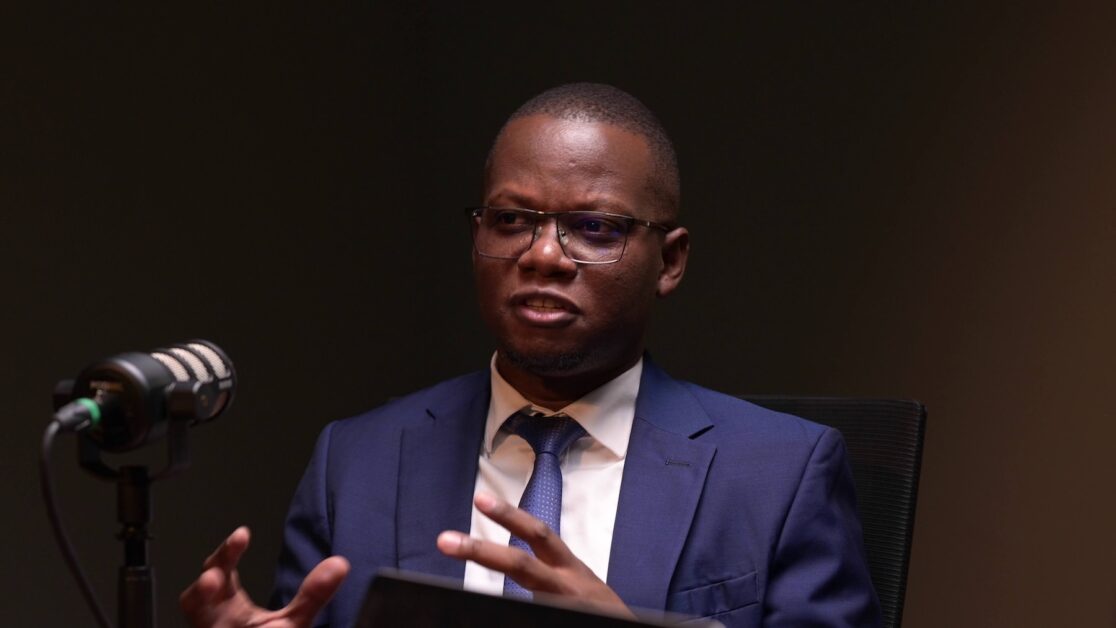
Second, get your pricing model right. You need to understand your market: the economy you’re operating in, the disposable income of your target patients. Structure your pricing in a way that you can serve different segments. For example, have a premium package where a consultation is 150,000 shillings for those who can afford it, but also offer services at 20,000 or 30,000 for the wider community. Segment your pricing strategically so you don’t price out too many people, but also don’t undersell yourself.
Third, and most importantly, it comes down to quality of care. Many hospitals fail, not because they lack resources, but because the quality of care is poor. Walk into a hospital and you can feel it immediately—are the staff welcoming? Is the environment clean? Do you feel cared for, or are you sitting in the waiting room for hours, feeling worse than when you arrived? That human touch, the empathy, the professionalism—those are what make a patient feel safe and valued.
As CFOs, we sometimes get caught up in the numbers, but we mustn’t forget that the real product in healthcare is the patient experience. If you get that right, the financial performance will follow.”
Robert, you’ve just transitioned into a senior leadership role at UNBS, and as a CFO, you’ve also sat on many interview panels, observing countless candidates. How do you package yourself to stand out and win such competitive interviews, especially at senior levels? And based on your experience, what common mistakes do candidates make that cost them finance roles, and how can they better prepare to succeed?
That’s a great question. I’ve gone through several interviews in my career, and what I’ve learned is this: preparation is everything—prepare, prepare, and prepare some more. But there’s also something we often overlook: manifestation. When I see a job I’m interested in, like the one at UNBS, I spend at least two days reflecting—Why do I want this role? How can I add value? Am I truly the right fit? That reflection shapes my cover letter, which isn’t a long essay—it’s usually just a page, but it must clearly articulate the value I bring.
I also tailor my CV for every role. Many of us just list tasks—’I do reporting, I manage budgets’—but that’s not enough. Your CV must showcase achievements: what you’ve done, where you’ve done it, and how you’ll do even better in the new role.
Once I commit to applying, I prepare like I already work there. I research the organization’s challenges, public image, and issues in Parliament. I anticipate strategic questions, not just technical ones. At the CFO level, it’s not about ‘How do you prepare a financial statement?’ It’s about, ‘How do we stop going back to Parliament for bailouts?’ That mindset has helped me stand out in interviews.
From the other side of the table—as someone who’s sat on interview panels for over 10 years—I can tell you the biggest reason candidates fail is lack of confidence. They walk in nervous, unsure of themselves, unable to explain how they’d do the job. Body language, tone, and articulation matter. If you can’t communicate your value, it’s a problem—even if you have the technical skills.
Another mistake is not showing enough interest. Some candidates don’t even ask, How did I perform? When can I expect feedback? They miss the chance to show they want the job.
And finally, presentation matters. Whether you’re a marketer or a finance professional, you must look like someone who can sit in the boardroom, engage clients, or negotiate deals. Don’t show up looking like you’re visiting your grandmother.
At the end of the day, I can teach technical skills—but I can’t teach confidence, common sense, or communication skills. Those are what I look for. If you have them, you’re good to go.
Robert, you spoke about keeping organisations from being summoned to the Parliamentary Public Accounts Committee (PAC), which ties into reputation management. There’s often a tension—many marketers feel CFOs undervalue intangibles like brand and reputation. As a CFO, how do you approach non-tangible investments like these? Do you see them as valuable, or do you focus mainly on tangible returns?
For me, this is something I’m learning—and one of the most important lessons I’ve picked up from other successful CFOs. The key is: learn the business. You must understand how the organization makes money, what it does, and why it matters.
For instance, at UNBS, our core role is consumer protection—safeguarding the public from counterfeits and harmful products. So, intangible things like training the public to check for certification marks, or running awareness campaigns, are critical. As a CFO, I can’t refuse to allocate a budget for that just because it’s not a tangible asset.
It’s all about knowing the value of what your business does for the community. And it’s also important for marketing, PR, and brand teams to document the impact of their work—because that evidence strengthens their case when they come to the boardroom. It’s not just CFOs who question these budgets—other technocrats do too. But when marketing can show the impact, it becomes easier for the CFO to support them.
At what point did you realize you wanted to be a finance professional? Was it a purposeful decision, or did you find yourself growing into the role over time? And now that you’ve fully established yourself in this career, how do you continuously skill and retool to stay ahead? What key lessons can rising professionals learn from your journey?
That’s a great question. For me, it really started in Senior Two. I remember my older sister had just graduated with a BCom, and a few months later, she was already driving a car. I thought to myself, Wow, accountants must be doing well if they can afford cars so soon! That moment stuck with me. I loved cars, and seeing her success inspired me to take accounting seriously.
Interestingly, I actually wanted to be a priest at first—makes the two of us! But in Senior Two, I found myself drawn to math, commerce, and accounting. That passion grew, and I pursued those subjects through O-level. At A-level, I chose MEG (Math, Economics, Geography) because I knew it was the path to commerce.
After my BCom at Makerere, I started my career in an unexpected place—as a Business Development and PR Officerat Finance Trust. The CEO, Mr. Matthias Katamba, told me, You speak well—come help grow the brand. I enjoyed it, but after a year, I realized that while PR and marketing were exciting, my real passion was finance.
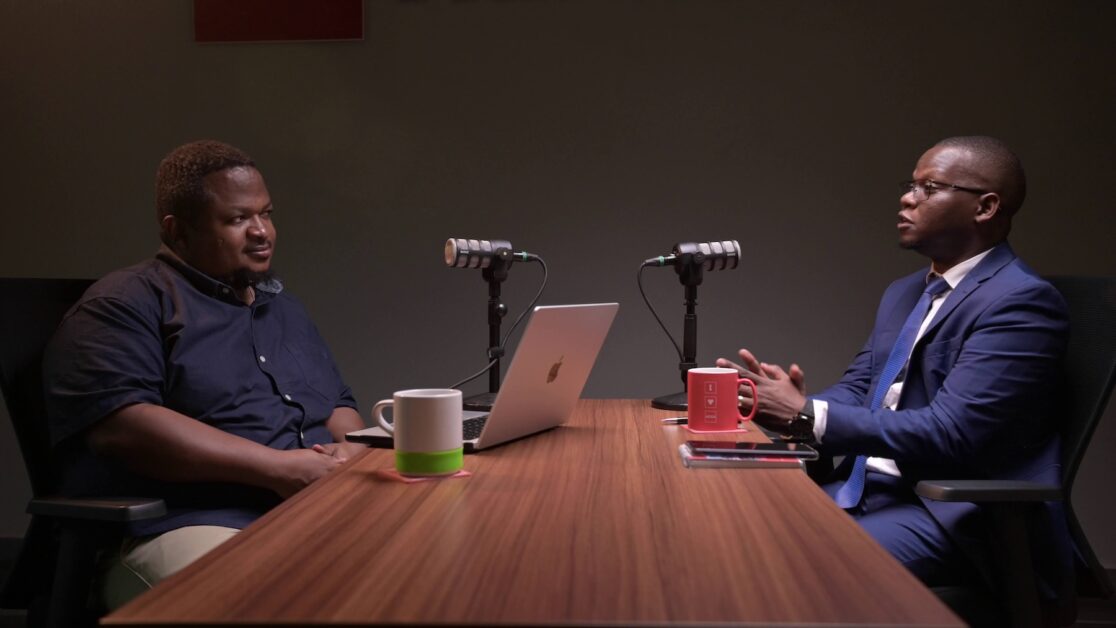
I spoke to Matthias and asked to be transferred to the branches to pursue the finance career I had trained for. That decision shaped my path—I became a teller, then a service officer, then into branch accounting, and my finance career took off from there.
So yes, it was a mix of inspiration, exposure, and deliberate choices—having role models, following my interests, and at some point, making the decision to focus on finance.
What I’ve learned over the years is that accounting is a versatile profession. Accountants can work in any sector—healthcare, banking, manufacturing, even oil and gas. We’re not limited, and that’s what makes the field so exciting. Once I realized that, I knew this was the right path for me.
I’m curious—after you landed your first job and bought your first car, did you feel like you had ‘arrived’? And as you’ve grown in your career, have there been moments where you had to take risks, retool, or pivot—any key milestones that helped you redefine your career?
Retooling has been a constant and intentional part of my journey. Early on, in A-Level, I decided to pursue MEG—Math, Economics, and Geography—because I knew that path would lead me to a BCom. After university, I started working at Finance Trust, but it took me a while to figure out exactly where I wanted my career to go.
For almost four years, I took time to reflect on my next steps. In 2011, I decided to pursue a postgraduate diploma in Financial Management at UMI. But even then, I realized it wasn’t enough to get me to where I wanted to be. Many of my BCom classmates had already moved ahead—some working in Somalia, others doing their ACCA—and I hesitated, thinking ACCA was too expensive or too hard.
In 2012, I made the decision to start my ACCA journey. At the time, I had joined the oil and gas sector, leading the accounts department in a startup environment—an intense and high-responsibility role that demanded strong professional skills. By the end of 2015, I had become an ACCA member.
Later, I realized that as I moved into management positions, I needed to deepen my strategic thinking and leadership skills. So, I pursued a Master’s in Corporate Finance with Salford University in the UK, between 2017 and 2019.
More recently, in 2022, I completed the CPA Uganda core papers, as it’s required by the regulator for finance professionals in Uganda. And right now, I’m pursuing the CTA—to build more depth in tax advisory, complementing my ACCA and CPA knowledge.
Beyond certifications, I’m committed to continuous learning. I never miss CPD events—whether it’s an ACCA Member Congress or any other training organized by professional bodies. I believe retooling is a lifelong journey; I can’t afford to relax. Every day, I’m learning, growing, and building my capacity.
When you were starting out in the finance profession—whether in school or in the early stages of your career—you must have had certain assumptions about what it’s like at the top. Were there any misconceptions you had back then that changed once you actually made it into senior roles? What are some of the things you discovered about the profession that reshaped your understanding along the way?
One of the biggest misconceptions I had about the finance profession was the perception that accountants are thieves. I really wanted to test that for myself. And what I discovered is this: it’s not true for everyone. The people who damage the profession’s reputation are usually those who haven’t fully professionalized—those who aren’t bound by a clear code of ethics.
As a professional accountant, you are held to a high standard of ethics, and I’ve seen firsthand that the majority of accountants are actually upholding integrity. It’s the few bad apples who spoil the name for the rest of us.
Another misconception I had—and I think many others do too—is that because accountants handle money, they must be among the richest people. But that’s not the reality. If you enter this profession thinking it’s about getting rich, building big houses, and driving fancy cars, you’ll be disappointed. Accounting is really about adding value—ensuring that organizations survive, grow, and remain sustainable over time.
Our biggest role as finance professionals is to help organizations thrive today, next year, and five years down the road. It’s not glamorous, and you won’t always be the highest earner. But the impact you have is incredible.
If you accept that, you’ll find contentment and happiness in your career. It’s like being the person in the family who cooks the meat—you see the food, you could take some for yourself, but you have the patience and integrity to wait until everyone is served. That’s the kind of self-discipline and mindset it takes to succeed in finance.
Out of curiosity, how do you handle the reality of knowing what everyone else in the organization earns, especially in your role as CFO? You see people earning more, maybe wonder, What are they doing differently? But you have to accept, This is their money, and I have mine. How do you stay grounded, remain ethical, and resist the temptation to misuse the information or resources you have access to? What mindset or coping mechanisms help you navigate this part of the job, especially when challenges arise?
That’s an important question. For me, I’ve come to understand that it’s not about me—it’s about the organization and the people. As a CFO, I look at it like a chicken with ten chicks: if you help the chicks grow, you all thrive together. That’s how I see my role.
It’s not always easy—especially when you see what everyone else is earning. But I’ve learned that real fulfillment comes from knowing you’re helping others grow. When I see someone I mentored years ago call me and say, You changed my life, that’s what makes it all worth it.
Resources will always be limited, so you have to think beyond just money. You have to look for creative solutions that make the organization stronger and people more motivated. I’ll give you an example: at one of my previous workplaces, we struggled because the staff kept saying, We need more money, we need higher salaries. But the reality was, the resources weren’t there.
So I thought, What can we do with what we have? We introduced small but meaningful things—like providing lunch for staff. That small gesture made a big difference: nurses became more caring, the quality of service improved, patient numbers grew, revenue increased, and over time, salaries went up too.
It’s not about the immediate paycheck. It’s about creating an environment where the organization grows—and when it grows, everyone benefits. That’s the mindset I hold: focus on the bigger picture, build people up, and the rewards will follow for everyone—including you.
From your personal experience, what are some key trends—both globally and locally—that anyone working in healthcare or the non-profit sector should be watching? How can they use this knowledge to strengthen their organizations and grow as professionals?
The biggest trend I see emerging in the not-for-profit sector is the declining donor aid. This is happening globally—take the US, for example, which has traditionally been the biggest donor to most NGOs here in Uganda. With leadership transitions every four years, policies shift, and funding priorities change. As finance professionals, we need to be very innovative about sustainability. If you’re in HIV, for example, and a new policy restricts funding for HIV programs, or for child rights if that’s your area, you have to ask: What’s next?
One solution is looking inward: mobilizing local funding. I keep telling colleagues in the not-for-profit space that local funding is available, but many think it’s only external money that counts. If you can document your impact—show the value you bring to communities—there are people of goodwill who will step in to support.
The second trend is the rise of AI and ICT governance. Artificial intelligence is a game-changer. As CFOs, we have to embrace it. We must adapt, unlearn, and relearn. If we don’t, we’ll get left behind. Finance leaders should not be stuck doing reconciliations and data entry—we should be using technology to generate reports quickly, to focus on analysis, and to provide insights for decision-making. Stakeholders, regulators, and donors want real-time information. We have to deliver.
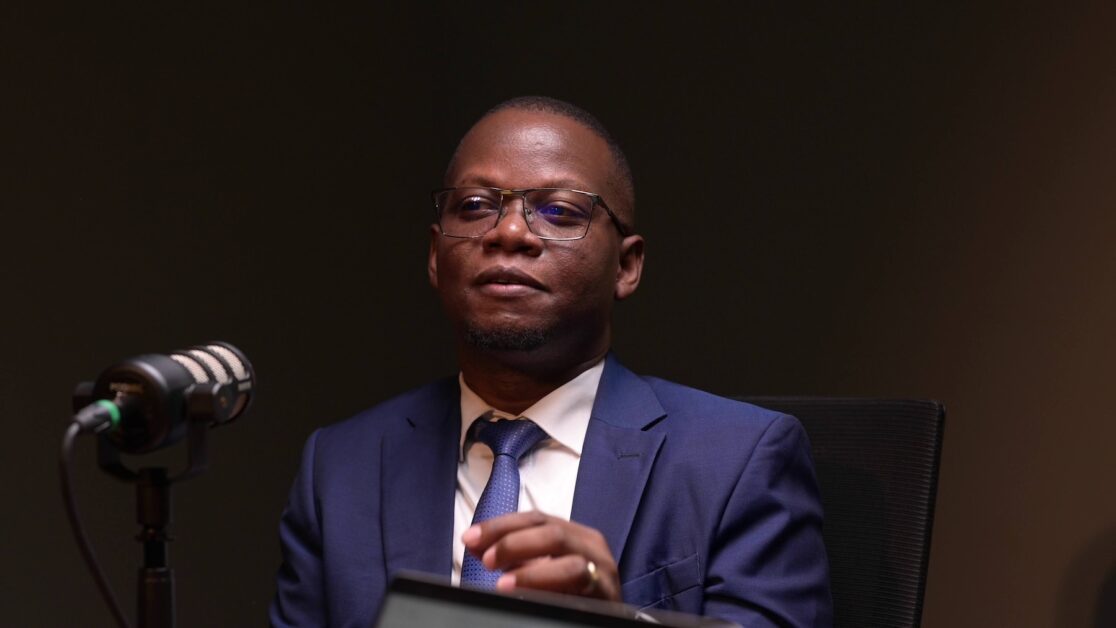
Third, the regulatory space is tightening. There used to be a mindset in NGOs that Ah, we’re not for profit—no one’s going to touch us. That’s no longer true. Regulatory compliance is now critical. Whether it’s taxes, staff contributions, or statutory deductions—if you’re not compliant, the authorities will shut you down, no matter the good work you’re doing. CFOs must stay ahead of compliance—there’s no shortcut.
The fourth trend is people. We’re now working with Gen Zs, Millennials, Gen Xers—and each group has its own ways of thinking. The younger generation, especially, is different. It’s not about clocking in at 8am anymore. They value flexibility, and what matters is results. If you try to micromanage them—Why did you arrive at 8:30?—you’ll lose good people.
We also have to invest in them—train them, motivate them, and let them explore beyond their roles. If someone is in finance, let them spend a day with the marketing team. If they’re in marketing, let them sit in on an operations meeting. These younger professionals want variety, and if you don’t give it to them, they’ll leave—and turnover is expensive.
So those are the four key trends:
1️⃣ Declining donor aid
2️⃣ AI and technology adoption
3️⃣ Tightening regulatory compliance
As a CFO, how do you handle tough conversations while balancing the interests of the organization? And from your healthcare experience, how can the way people engage with an institution, like a hospital, shape the outcomes they get? Any key lessons on the power of effective engagement for other leaders?
For me, it all starts with clarity—knowing exactly what I need from each stakeholder before I even start the conversation.
If I’m engaging a banker, am I asking for better terms, faster services, or new products that can support the business?
If it’s a supplier, am I negotiating on price, quality, or payment terms to ease cash flow challenges?
With customers, am I seeking loyalty, feedback, or long-term commitment?
The biggest mistake CFOs make is approaching stakeholders as if they’re doing us a favor. The truth is, they are! We need to come to the table prepared, with a humble mindset and a clear understanding of what we’re asking for, why we need it, and how it benefits both sides.
Take regulators—if you owe taxes, you can’t walk in with arrogance. You need to understand your position, have your facts straight, and explain your case respectfully.
Or in healthcare: if 60% of your patients are on insurance that pays after 90 days, but your suppliers like GM West want payment in 30 days, you have to sit down with them, explain the cash flow realities, and negotiate realistic terms.
It all comes down to knowing what you need, understanding your stakeholders, backing up your requests with facts, and engaging in good faith. That’s how you build relationships that actually work.
There’s a common belief that insurance clients often get poorer service than cash-paying clients, maybe because the money takes longer to come through. From your experience in healthcare, is that true? And if so, how do finance leaders ensure fairness in service delivery, regardless of payment type?
No, no, I think that’s really a misconception, as you said. It depends on the institution’s values and the hospital’s philosophy.
Surprisingly, there are hospitals where insurance clients are treated like kings—they’re given a dedicated waiting area, comfortable chairs, water, DSTV. Meanwhile, the cash-paying patients are lining up and sometimes even standing, yet they’re the ones bringing in the actual cash flow!
I’ve seen hospitals where over 70% of the patients are on insurance, and the facilities are actually better—more organized, more comfortable. Then you go to a hospital that’s mostly cash-paying patients, and the experience is rough—patients sitting on benches, even on the floor in some cases.
So for me, it’s really a hospital culture issue, not a rule. Yes, insurance companies impose caps and exclusions, and that’s where the misconception starts. When a patient’s treatment is limited by their insurance, they may feel neglected and blame the hospital. But in most cases, it’s about policy limits—not the hospital refusing care.
It’s a matter of understanding the system, and hospitals being transparent with patients about what insurance can and cannot cover.
With your experience in the healthcare sector, what do you think needs to change to improve Uganda’s public healthcare system? If I appointed you Minister of Health tomorrow, what are some of the key things you’d focus on—especially when it comes to budget allocations and ensuring individuals get better care? Given your background in private healthcare and finance, I’m sure you’ve got some unique insights on how we can fix the system
If I met Dr. Jane Ruth Aceng today, I’d tell her the number one thing we must fix in public healthcare is the availability of healthcare workers. That’s the root problem. At OneWorld Health, the reason we even exist is to fill the gap created by public sector failures—gaps caused by the absence of nurses, doctors, and healthcare staff.
So, how do we fix it? It’s simple: manage people. Human beings can be difficult, but they’re also easy to manage if you set clear expectations. If you’re on duty, you must be present. If you don’t show up, you’re out. It’s a system that works in places like Singapore, but here in Africa, we’re too hesitant to enforce accountability.
We need to hire strong professionals who can manage people and processes, and we need to enforce discipline. If you’re supposed to be on duty and there’s a mother waiting to deliver, but you’re not there—that’s unacceptable.

Motivation is also key. That starts with better pay—healthcare workers need to earn more, full stop. But it also means having the tools of the trade: medicines, equipment, blood supplies. I’ve heard from doctors and nurses who say, I want to save lives, but I don’t have the resources to do my job. How can we expect them to perform under such conditions?
So, it’s clear:
✅ Equip hospitals with the right tools.
✅ Pay healthcare workers better.
✅ Manage people effectively and hold them accountable.
If I were Minister of Health, that’s where I’d start. It’s not rocket science—it’s basic management, fair pay, and giving people the tools they need to do their jobs.
As we wrap up, do you have a particular philosophy that guides your leadership style? And when you think about your legacy, what do you hope to leave behind in every place you go—how do you want to be remembered?
Definitely, I do have a leadership philosophy. For me, I always pray to be an approachable leader. I run an open office—whether it’s the cleaner or the security guard, I make sure everyone feels they can talk to me. Why? Because those are the people who will tell you the real story—who’s sneaking medicine out in their car, what patients are complaining about in the wards. If you’re not accessible to everyone, you’ll miss the most important details.
The second part of my leadership style is technical competence. I strive to be as hands-on as possible. I believe a good CFO must know their craft—you can’t be a finance leader who can’t prepare a balance sheet or who runs to the boardroom saying, my team wasn’t ready. That’s embarrassing. So, I make sure I know my numbers and can teach others around me. Mentoring my team and helping them grow is part of how I lead.
As for legacy, it really depends on the organization. At OneWorld Health, I’m proud to have built systems—for procurement, inventory management, and finance—that will continue to work even after I’m gone. That’s like running a country: when you have strong systems, even if the entire cabinet disappears, the country keeps going.
In some organizations, I want to leave a legacy as a mentor; in others, as someone who helped the organization grow or innovate. At UNBS, for example, my focus is on reputation—making sure our financial statements are accurate, transparent, and reflect the true picture of the organization. That, to me, will be an achievement I’ll be proud of.
Reflecting on your first six months at UNBS, what have been your biggest leanings and challenges so far as a CFO, and how have you navigated them to align finance operations with the Bureau’s mandate?
So far, after six months, I have been able to understand the operations of public sector in financial operations and the regulatory environment around public entries that operate as a Vote.
Biggest challenges so far have been in navigating that complex regulatory environment especially around PPDA and PFMA and other regulations. I have also seen challenges in being efficient as a Bureau in fulfilling our mandate to the public mainly due to budgetary constraints. Turnaround time and speed in execution of work is still a big problem but it is mainly due to limited resources that would enable us to deploy enough staff to handle the requests from pubic. This affects our reputation as a standards body and affects our effectiveness. The reporting framework changes from cash to modified accrual have also not been well adopted by entities and yet it is crucial to proper financial reporting. Planning is very difficult due to the funding model of the vote system where releases of funds are in advance to execute prepaid activities making it difficult to plan efficiently for proper mandate execution.
To navigate these challenges, the first thing I embarked on was to align our UNBS Act to the PFMA and ensure full operations of the Act in regards to financial management. I am also working with internal stakeholders to streamline operations for efficiency through automation and improved technology at the least cost possible. Proper and transparent reporting systems, risk management and compliance, and ensuring that engagements with the right external stakeholders take place to increase funding and or change the funding model of UNBS for efficiency.
As CFO at UNBS, how are you working to ensure financial transparency, sustainability and efficiency in a regulatory body that serves the entire country – and what strategies are you putting in place for long-term impact?
At the heart of our financial strategy at UNBS is the establishment of a clear and transparent reporting framework—one that facilitates timely and informed decision-making at all levels of the organization and across all our stakeholders. We have also prioritized the development of efficient and robust accountability systems to ensure that resources are used judiciously and aligned with our institutional mandate.
Sustainability, however, goes beyond internal systems. It requires intentional collaboration with a wide range of stakeholders. This includes strengthening inter-agency partnerships and deepening private sector engagement to support and co-own our regulatory and trade promotion mandate. These partnerships are vital for extending our impact, reducing duplication of effort, and unlocking innovation across the value chain.
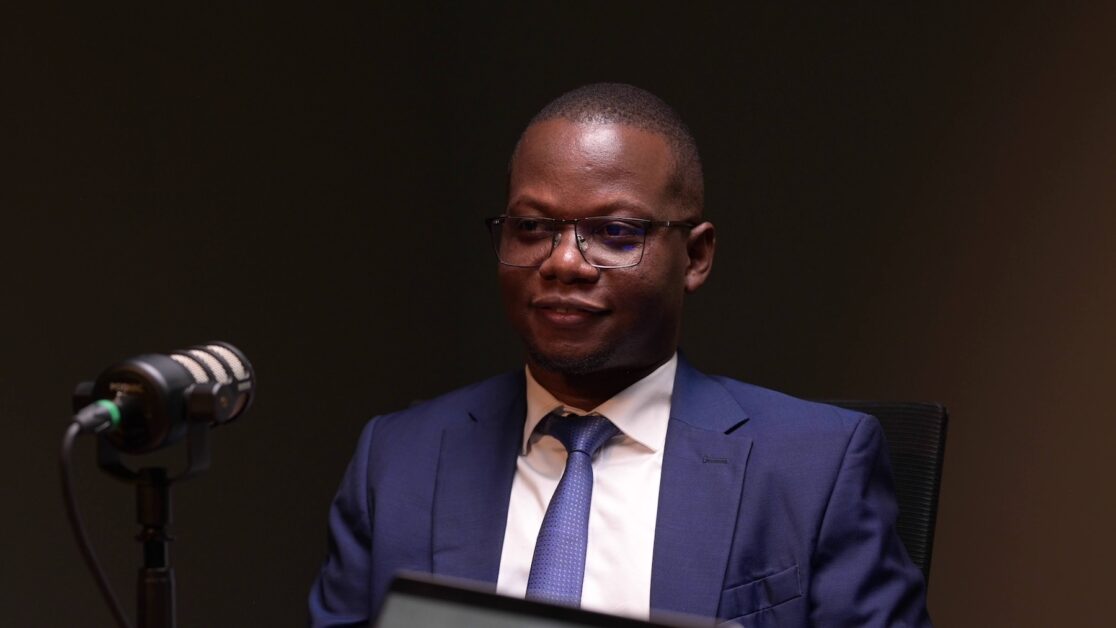
One of our core long-term strategies is to realign our funding model. Recognizing the limitations of government resources, we are advocating for a gradual shift from full government financing towards a self-financing model. Under this approach, UNBS will operate more independently, leveraging its revenue-generating potential to sustain operations and effectively safeguard Ugandans from substandard goods and services.
Automation and digital transformation are equally central to our vision. To enable agile and evidence-based decision-making, we are investing in fully automated processes and systems capable of generating real-time data and reports. This will significantly enhance transparency, improve service delivery, and reduce operational bottlenecks.
Finally, we believe that talent is the engine that powers all these strategies. The finance team must be not only technically proficient but also forward-thinking—capable of navigating the evolving landscape of regulations and technology. Continuous professional development, including training and mentorship, will be a cornerstone of our long-term impact. By building a competent and agile finance function, we are laying the groundwork for a more resilient and future-ready UNBS.
Share this content:
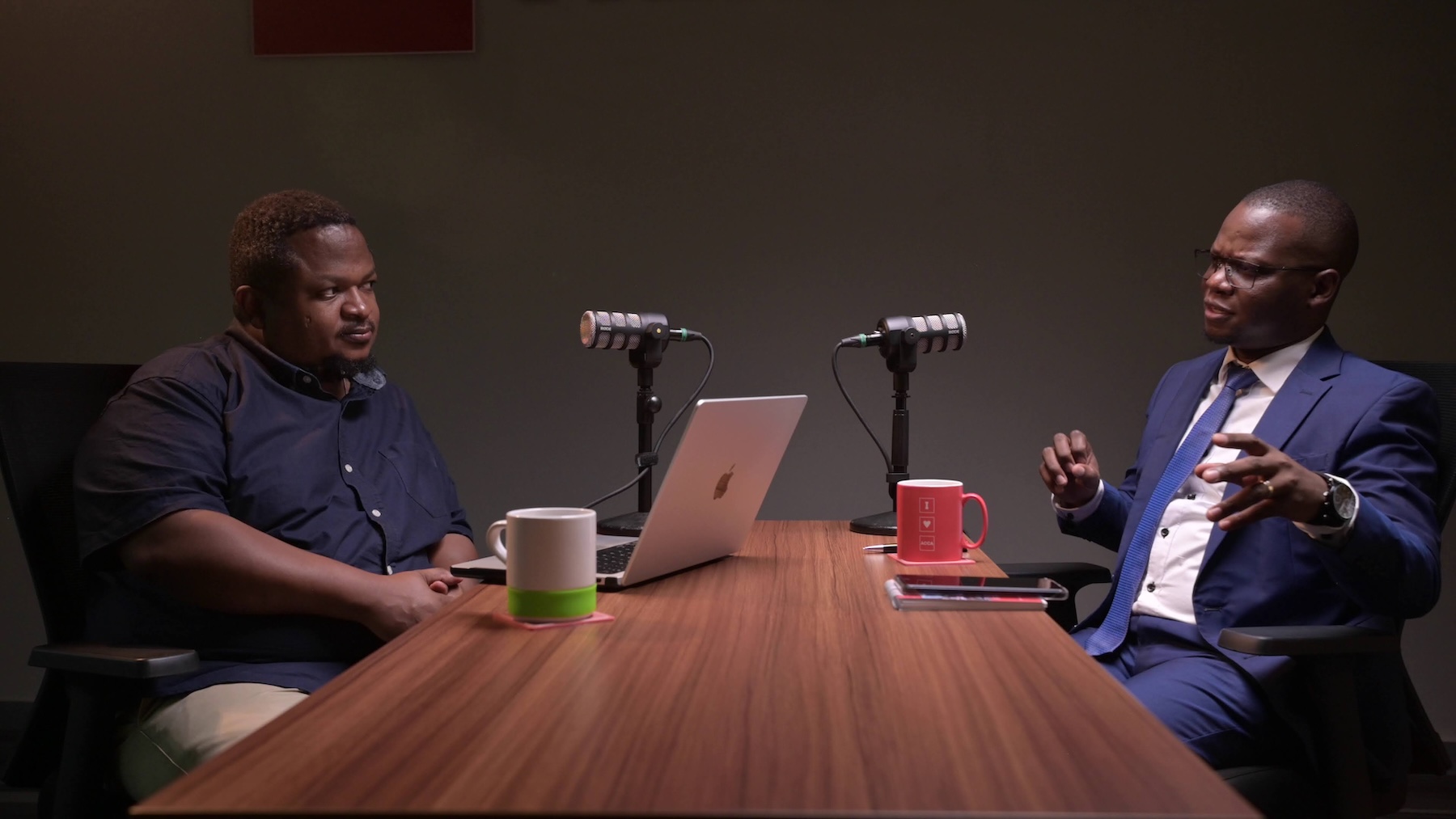

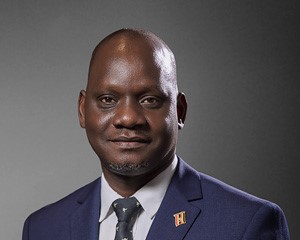
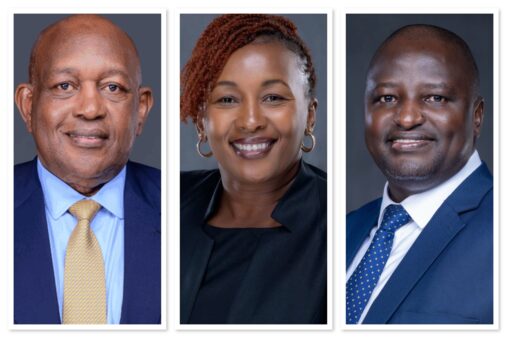
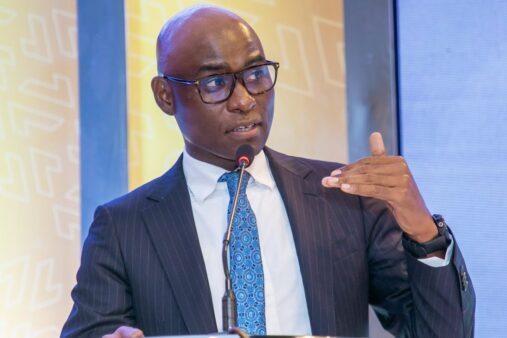
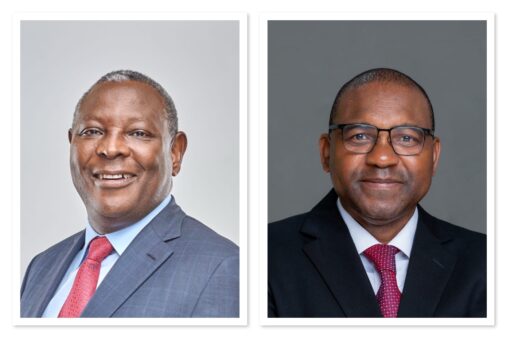




Post Comment